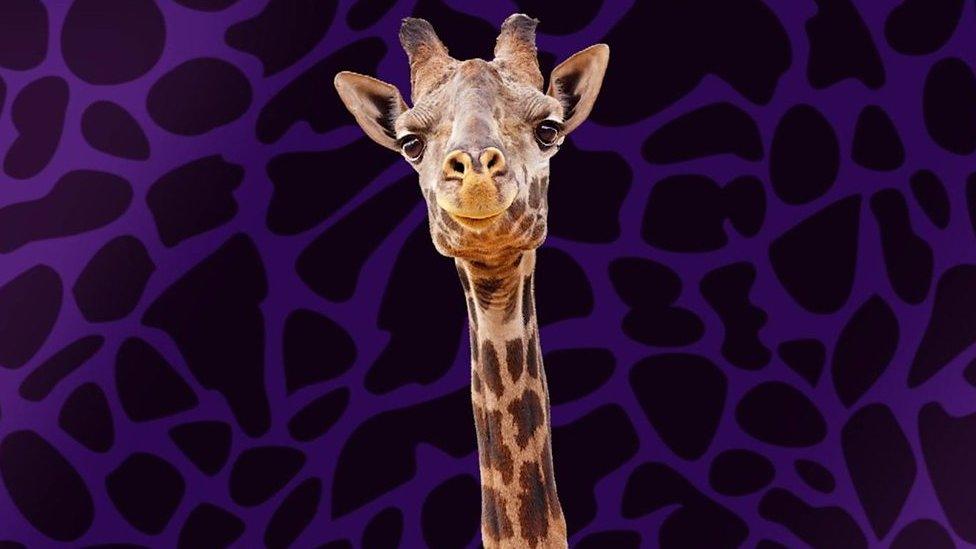Giraffes use maths to make predictions, according to new study
- Published
- comments
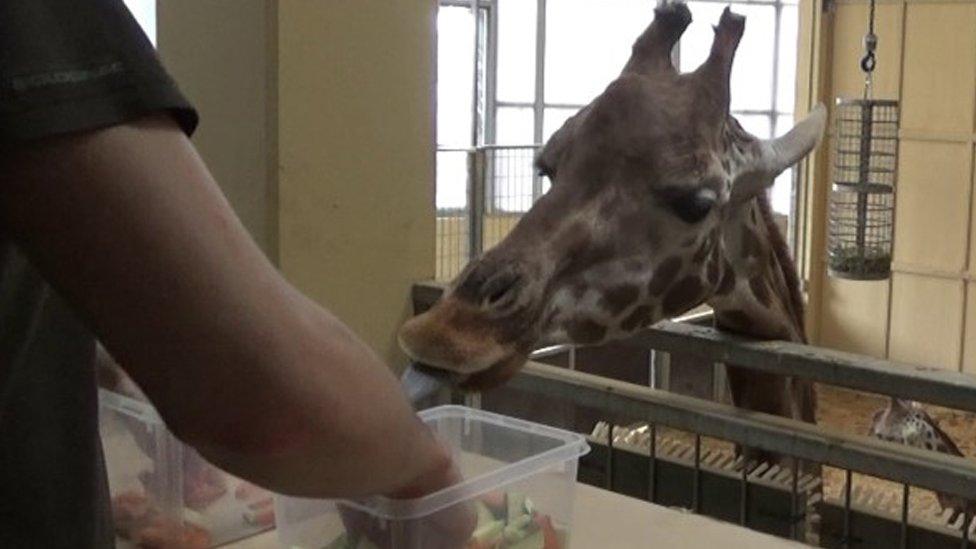
Four giraffes at the Barcelona Zoo in Spain were involved in the study
Giraffes are known for having lots of amazing qualities - they're incredibly tall, have amazing vision and they can even sleep standing up.
Now, a new study suggests the animals could be mathematicians too!
According to the research, giraffes may have a special ability to use statistics to make predictions.
The findings suggest that despite having quite a small brain for mammals, giraffes may be smarter than previously thought.
What did the study involve?
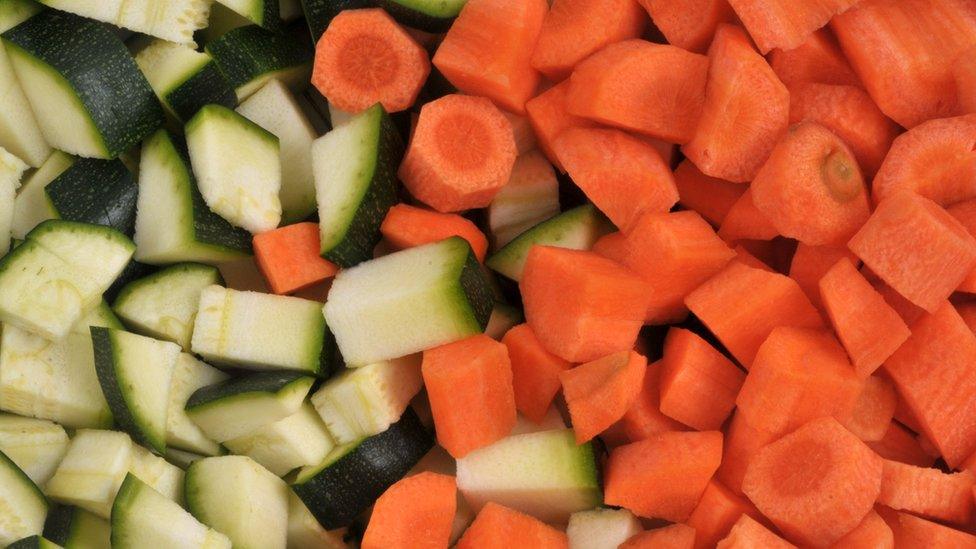
The giraffes were able to pick from two containers filled with carrots and courgettes
Four giraffes at the Barcelona Zoo in Spain were involved in the study. The researchers presented the animals with two transparent containers filled with vegetable sticks.
Each box had a different mix of carrots and courgettes, with carrots being the preferred option for the giraffes.
The researchers took a vegetable stick from each container which was held in closed fists, and the giraffes could then choose between the two options.
Although the animals didn't see which vegetables had been picked up, they were able to repeatedly choose the one taken from the box with more carrots than courgettes.
Different versions of the experiment were carried out to make sure the giraffes weren't just choosing the container which had the most carrots overall, but were basing their decisions on ratios.
One of the experiments involved placing a barrier in each of the containers, which meant the giraffes could only see the top part of each of the containers when making their decision.
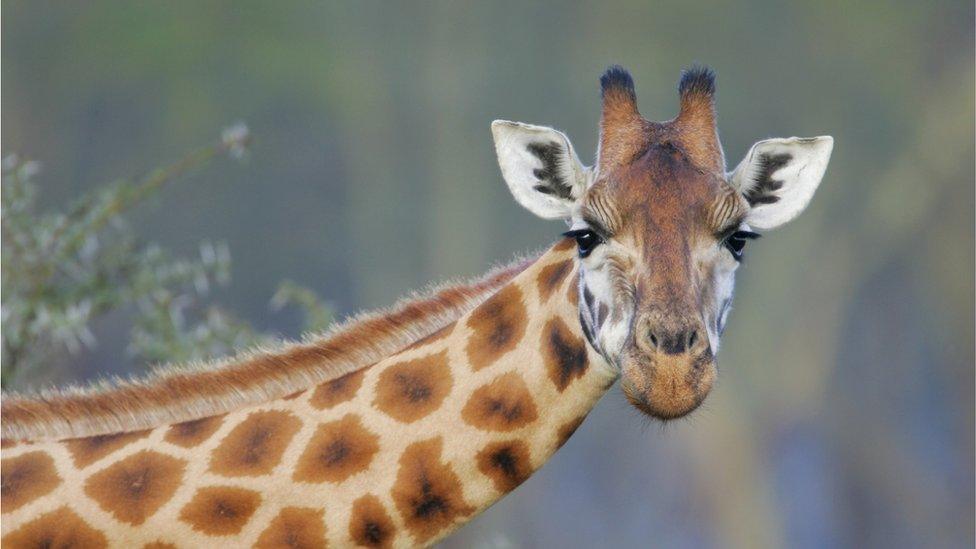
Giraffes may be smarter than first thought
In 17 out of 20 experiments, the giraffes were able to correctly pick the container that was more likely to get them a carrot stick treat.
"Our findings indicate that giraffes have the ability to make decisions based on the proportion of food in each container, in order to maximise their intake of the preferred food," said University of Barcelona PhD student Alvaro L Caicoya, an author on the study.
The researchers who worked on the study say the ability of giraffes to make predictions like this could come in handy out in the wild, for example when giraffes are identifying which trees have the best proportions of leaves and flowers for them to munch on.
"This ability allows giraffes to conserve energy by avoiding unnecessary travel to less desirable food sources, and instead focus their efforts on reaching the trees that provide the most beneficial nutrients."
The ability to make predictions based on statistics is considered a highly developed reasoning skill and has previously only been seen in animals with bigger brains including primates, and keas, a species of large parrot found in New Zealand.
- Published21 June 2021
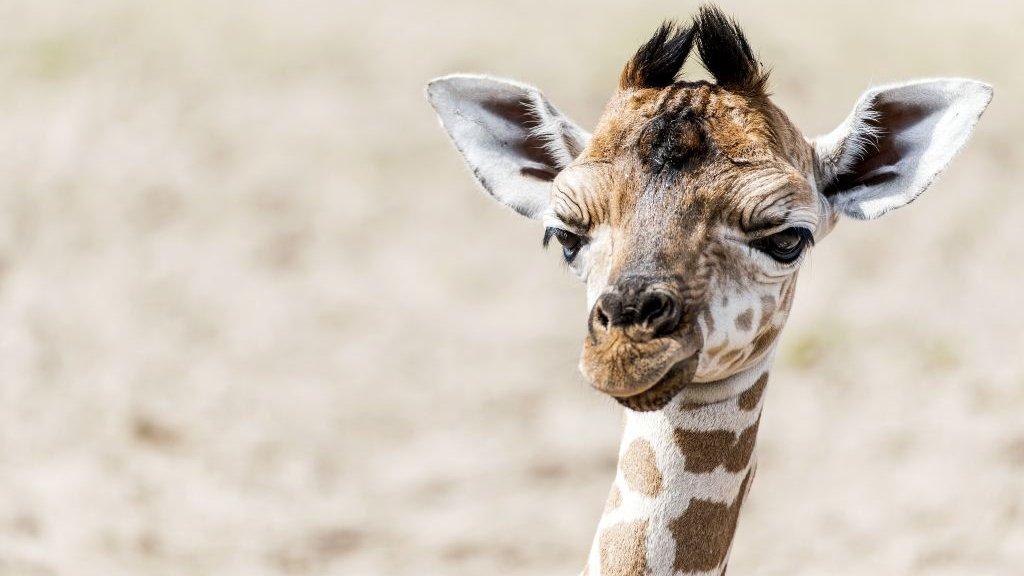
- Published23 August 2019
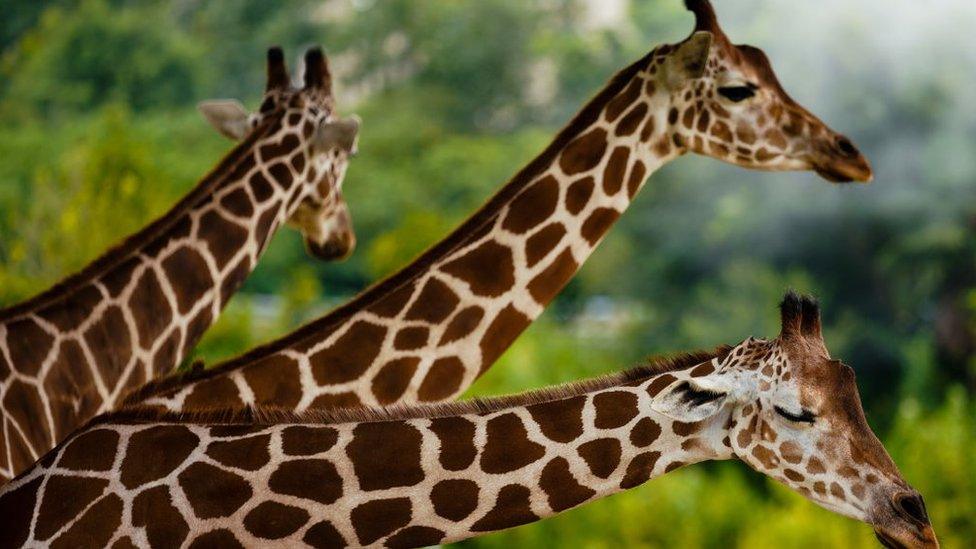
- Published13 April 2018
